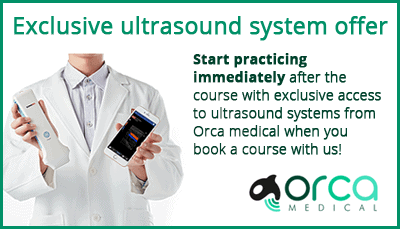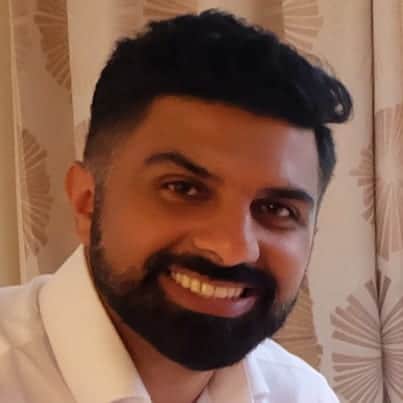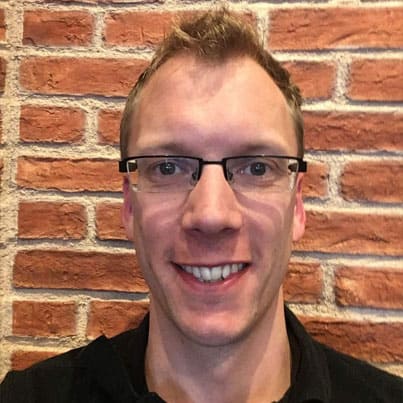About this course
The use of diagnostic MSK ultrasound is increasing in point of care environments such as Physiotherapy, Podiatry, Sports and Exercise Medicine, Orthopaedic clinics and Rheumatology. A particularly well evidenced and innovative role for diagnostic ultrasound use is with patients with Rheumatological conditions. The ability to identify sonographic findings such as synovitis, may facilitate earlier specialist opinion. The course aims to enhance clinicians’ understanding and awareness of diagnostic musculoskeletal ultrasound in Rheumatology and how it will change your practice. Taught by Dr Qasim Akram, Consultant Rheumatologist.
This course provides a fantastic learning opportunity, using numerous case study examples.
The course takes place at Mary Seacole Building, Brunel University London, 8 Kingston Ln, Uxbridge UB8 3PN View Location Map
Who is this course suitable for?
This course is suitable for allied health or medical professionals who:
- Have experience of working with patients with musculoskeletal injuries or complaints
- Work with patients with Rheumatological disorders
- Current registration with the relevant UK professional body eg HCPC or GMC, or foreign equivalent if travelling from abroad
Course outline
| Time | Activity |
|---|---|
| 8.45am | Registration |
| 9am - 9.45am | An overview of rheumatological disease – clinical features, imaging and when to refer for specialist input |
| 9.45am - 10.45am | The role of diagnostic ultrasound in rheumatological disease-an introduction. Highlighting sonographic features to look out for and the implications of them. |
| 10.45am - 11am | Break |
| 11am - 12.30pm | Practical scanning – A systematic approach to evaluating the hands and wrist in rheumatological disease. (Presentation accompanying practical sessions). Including MCPJs, PIPJs, DIPJs and tips and tricks. Flexor and extensor tendons. |
| 12.30pm -1.15pm | Lunch |
| 1.15pm - 3pm | Practical scanning in pairs – A systematic approach to evaluating the foot and ankle in rheumatological disease (Presentation accompanying practical sessions)Evaluation of ankle and forefoot joints. Medial and lateral tendons. |
| 3pm - 3.15pm | Break |
| 3.15pm - 3.45pm | Case discussion - discussion on clinical and sonographic findings and the impact on care. |
| 3.45pm | Exploring the future training opportunities that are available focussed to Rheumatology |
| 4.15pm | Questions , summary and close |
Course Dates & Booking
All prices shown are inclusive of VAT
If your attendance on the course is to be funded by your trust or you have any other queries then please contact us.
| Date | Places | Price | |
|---|---|---|---|
| Date | Places | Price |


Your Course Tutors

Dr Qasim Akram
Consultant Rheumatologist and General Physiocian, BSc (Hons.) MBChB MRCP (UK) MRCP (London) MRCP(Rheum) PGCert (Clin Ed)
Dr Qasim is a Consultant Rheumatologist and General (Internal Medicine) Physician based in Manchester, UK. He is an expert in the use of musculoskeletal ultrasound in the diagnosis and treatment of various rheumatological diseases.
He completed a highly-specialised fellowship (Aug 2016) under the guidance of both a pioneer and international expert of musculoskeletal ultrasound, Dr Esperanza Naredo, in Madrid, Spain. He holds European Federation of Societies for Ultrasound in Medicine and Biology (EFSUMB) and European League Against Rheumatism (EULAR) MSUS accreditation, and is an independent ultrasound practitioner within a select group of rheumatologists, in the UK, to carry out an international fellowship in this field.

Mr Stuart Wildman
MSc, BSc (Hons) Physiotherapy, HCPC, MCSP, PG Cert/CASE accredited Musculoskeletal Sonography, PG Dip injection therapy
Stuart is an Extended Scope Physiotherapist and Consultant MSK Sonographer working in the NHS in London. He founded The Ultrasound Site. He has an interesting working week, dividing his time between Radiology and Physiotherapy, here he performs both diagnostic and guided interventions in both. He qualified from the University of Southampton in 2003 with a BSc Physiotherapy, and went on to gain an MSc in Advanced Neuromusculoskeletal Physiotherapy at The University of Hertfordshire and a PG Cert in MSK Sonography at Canterbury and Christ Church University.
Course location
Mary Seacole Building, Brunel University London, 8 Kingston Ln, Uxbridge UB8 3PN
FAQs about our courses
Q. How do I know that this course is of high quality?
All the lecturers on the course have completed/training rigorous training, and have obtained PG Cert in MSK Sonography and have been using MSK Ultrasound for a substantial amount of time. They are clinicians with many years experience of integrating ultrasound into their practice alongside other forms of imaging such as MRI. Several teach on PG Cert MSK Ultrasound courses as guest lecturers. The lecturers are also members of executive committees of groups within professional bodies so are very familiar with MSK ultrasound development across a number of disciplines.
Q. Do we get to use the ultrasound machines?
We know the importance of hands-on practice when scanning! So we can reply with a massive YES! The course is designed with high student-to-lecturer ratios and large number of machines to ensure that as much time as possible is spent with the students scanning under close supervision. We understand the subtlety of moving a probe to ensure you achieve a high quality diagnostic image.We also use crib sheets, which are signed off at the end of each body part to ensure that everybody has an opportunity to scan each of the listed areas under each body part.
Q. Does this qualify me as a sonographer?
Surprisingly, a sonographer is not a protected title and therefore anyone can theoretically call themselves a ‘sonographer’. I guess it is more a question of does this deem me competent to perform ultrasound in the setting I wish to use it in?. Well, this depends on the setting and the local governance but essentially this course is designed as an important first step for people who are considering an ultrasound qualification, or who are interested in learning ultrasound to give them an idea of how ultrasound may fit into their practice. The course can also serve as a refresher, perhaps for certain joints.
To undertake a formal qualification which would lead you to be able to work in for example Radiology departments within the NHS you would need to progress on to complete a PG Cert qualification on a CASE accredited course. This course would place you in a strong position before starting your CASE course.
Q. How do I know if I am scanning things correctly?
Because we have a large ratio of tutors to students, there will be tutors with each group for as much time as possible throughout the day to ensure that you are handling the probe correctly and there are lots of tips on image optimising and use of the machine technology to get the best image! Basically, we will be peering over your shoulder! We also use a competencies based crib sheet to ensure that everybody has scanned all of the importance structures on each body part area.
Q. What are the advantages of doing this course?
The advantages of doing this course is that all of the tutors have extensive experience of working with ultrasound and ultrasound guided injections working within a busy multidisciplinary team physiotherapy outpatient department.
Q. What are the terms and conditions for refunds and bookings?
All details for the refund policy and bookings terms and conditions can be found HERE
Q. Do I need to have scanned before in order to attend a course?
No. We have many people who attend the course who have little, or no, previous scanning experience. This course is designed to accommodate people who have no previous scanning experience and are interested in learning from scratch. However, as mentioned above, it is also a very useful learning experience for people with some scanning background as well.
Q. Do you provide training to whole departments?
We are able to travel and provide a customised training program for a group of clinicians in a department. For further discussion email us at [email protected]
Q. Does this course qualify me to perform ultrasound guided injections in my workplace?
No. In order to perform image guided injections in your workplace you must conform to local guidelines and competency requirements. This course, however, may form part of your CPD and learning if you are looking to start performing ultrasound guided injections, or as a top-up course as part of your continuing CPD.